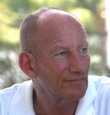If information and knowledge is the currency of today's marketplace, then asking questions is the means of accessing that currency. Knowing how to ask what questions when is important in leadership positions, sales, management, teaching and parenting as well as learning in any field of study. We ask so many questions daily that we take it for granted. But, there is art to asking questions.
There are two types of questions: open and closed. Closed questions are those that can be answered with one of three words: yes, no or, sometimes, maybe. For example: "Can you tell me the time?" is actually a closed question because the response only calls for a simple yes or no. More often than not, people will assume the person actually wants to know the time, not just if the person is able to tell them the time. "Are you feeling OK?" is a closed question because, again, a simple yes or no is an adequate response even though the person asking the question may really want more information. Sometimes a closed question is very strategic and a precursor for more questions. For example, an attorney dealing with a hostile witness might begin questioning with a closed question: "I'd like to ask you some questions, is that OK with you?" or "Would you be willing to answer some questions I need to ask you?" In both cases a yes or no is adequate. Moreover, such questions suggest respect as they are asking permission to ask questions. A doctor may ask closed questions to help make a diagnosis. "Do you feel pain in your stomach?" or "Do you feel tired most of the day?" only require a yes or no response. By asking a series of closed questions, a doctor may be able to gather enough information to rule out a variety of diagnosis and discover the problem.
Open questions require more than a simple yes or no (or maybe) answer. They require some elaboration. And, generally, the elaboration is not nearly enough so another open question is asked - and then another. Open questions can be like "the third degree" and are sometimes referred to as interrogative questions. An example of an open question is "how are you feeling today?" A yes or no response doesn't make sense. Of course, the most common response is "OK" which is pretty meaningless. So, if a person is really interested, they would need to ask another open ended question like "What exactly are you feeling?"
Open ended questions are used extensively in sales and negotiation to help remove objections or obstacles. For example, if a sales person hears the prospective buyer state that it costs too much, the sales person might ask "what specific features does this product need to have so you think the price is fair?" A negotiator might ask one or both parties involved in negotiation "what needs to happen in this negotiation so that you are both satisfied?" These kinds of questions are often not easy to answer and require some thought. Leaders too need to use questions wisely. Asking a subordinate a question in the right way can make the difference between allegiance and sabotage. Parents can benefit from using open ended questions with their children, particularly adolescents. A parent might ask "how can I help" or "what do you need" when inquiring about their child's poor grades. Although those questions might only get an "I don't know" response, that in itself is a clue and may actually be true. In such cases, a good question to ask is "can you take a guess?" That, actually, is a closed question requiring only a yes or no response. But, more often than not, a person will take it to the next step and might actually guess at an answer. The irony is that it's not really a guess but couched in that framework makes it safer to say what they are really thinking.
Take some time and listen to the questions people ask. Listen at work, at the market, at the bank, at home...Wherever you are able to listen to others, try and pick out the open and closed questions. Then, become aware of the questions you ask and begin to use the power of asking open and closed questions more consciously and more concisely.
Ken Fields is owner and principle counselor at Open Mind Counseling, http://www.openmindcounseling.com He is a nationally certified licensed mental health counselor with over 25 years of experience in working with individuals, couples, families and groups. He has been a crisis intervention counselor, has taught at university and has been an administrator in a human service agency. He has taught public classes in stress and anger management, mediation, communication and negotiation, self image psychology, motivation and goal setting and crisis prevention. Mr. Fields now offers online communication coaching and counseling specializing in cognitive behavior and family systems therapy.

Post new comment
Please Register or Login to post new comment.